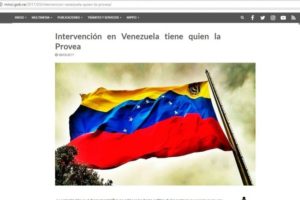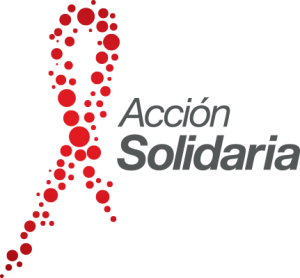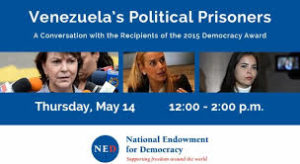
Provea
The US government unveiled a plan on Tuesday to break Venezuela’s political deadlock, inviting President Nicolás Maduro to cede power to a new transitional government in exchange for sanctions relief and humanitarian aid as the impoverished country struggles with coronavirus, The Financial Times reports:
Coming just days after the Department of Justice charged Mr Maduro in relation to “international narco-terrorism”, the new “democratic transition framework” calls for the establishment of an interim Council of State to rule Venezuela until fresh elections can be held in six to 12 months. Under the proposal, neither Mr Maduro nor Juan Guaidó, his western-backed rival, would be allowed to sit on the new five-member executive council. It would be made up of two government and two opposition members and they would together choose a fifth person to serve as interim president….
“The hope is that this setup promotes the selection of people who are very broadly respected and known as people who can work with the other side,” U.S. Special Representative for Venezuela Elliott Abrams told the AP in a preview of the plan. “Even people in the regime look at this and realize Maduro has to go, but the rest of us are being treated well and fairly.”

Accion Solidaria
Free and fair presidential elections are the path out of Venezuela’s crisis. Because Mr. Maduro cannot be trusted to organize them, establishing the Council of State is an essential step, Abrams wrote for The Wall Street Journal. The Democratic Transition Framework paves the best path to a restoration of democracy through fair participation of all parties, and an end to the brutality, repression and political turmoil that have marked Venezuela’s recent past.
In an apparent softening of tone, Abrams told Reuters that while Maduro would have to step aside, the plan did not call for him to be forced into exile and even suggested that he “could theoretically run” in the election. Pompeo insisted that “Nicolas Maduro will never again govern Venezuela,” but said the administration hoped he would take the U.S. proposal seriously.
David Smilde, a senior fellow at the Washington Office on Latin America, said the deal was very similar to what was discussed by Maduro and Guaidó representatives in Oslo and Barbados last summer, with one major difference, the Guardian reports.
 “Coming less than a week after indicting all the main figures of the Maduro government it would seem the Trump administration is trying to hardwire in who they think should be part of a transition,” Smilde said on Twitter. “This was a main point of contention during last summer’s negotiations, with the US reluctant to endorse any transition plan that allowed Maduro to preside over new elections.”
“Coming less than a week after indicting all the main figures of the Maduro government it would seem the Trump administration is trying to hardwire in who they think should be part of a transition,” Smilde said on Twitter. “This was a main point of contention during last summer’s negotiations, with the US reluctant to endorse any transition plan that allowed Maduro to preside over new elections.”
With the already bankrupt country running out of gasoline and seeing bouts of looting amid the coronavirus pandemic, calls have been growing for both the opposition and Maduro to set aside their bitter differences to head off a nightmare scenario, POLITICO adds.
“The regime is under greater pressure than it has ever before,” Abrams said.







